So a couple of things here.
The Github API will return a JSON. From the possible response available here it will not provide a list, but a dict (after conversion from JSON to a python object). I think flakes was correct in his comment.
As to your main issue, I think it has to do with the fact that you use word[0] and word[1]. You are slicing a simple string here. Because of the for loop, each word variable will contain one of the elements from the polite_words. There's no need to actually do any slicing here.
Take a look at the logic below, it will trigger on any comment that contains one of the strings in the polite_words variable.
Also note that if you need the JSON from a request, using the requests library, you can just use response.json(). See the assertion in the logic below. Do please note that I'm doing the simplest assertion to determine if the JSON values are the same.
import json
import requests
comment_url = "https://api.github.com/repos/octocat/Hello-World/pulls/comments/1"
resp = requests.get(comment_url)
text = resp.text
js = resp.json()
print(type(text), text)
print(type(js), js)
pull_request_comment = json.loads(text)
print(type(pull_request_comment), pull_request_comment)
# assert if the values from js and pull_request_comment are the same
assert json.dumps(js, sort_keys=True) == json.dumps(pull_request_comment, sort_keys=True)
polite_words = ("please", "appreciate", "would be great")
# safety check to see if we actually got a body
if "body" in pull_request_comment:
polite = False
for word in polite_words: # Loop through each element of reportTuple
if word in pull_request_comment["body"]:
polite = True
break # no need for further processing
if polite:
print("You are polite!!!")
else:
print("You are impolite!!!")
else:
print(f"no body found in response:\n{text}")
EDIT
So changing the processing of single comments into a function, and then doing a simple check on whether you got a list or a dict (after conversion) from the API, you can call the funcion based on that.
See the adjusted code below...
import json
import requests
polite_words = ("please", "appreciate", "would be great")
def process_comment(comment_dict: dict):
# safety check to see if we actually got a body
if "body" in comment_dict:
polite = False
for word in polite_words: # Loop through each element of reportTuple
if word in comment_dict["body"]:
polite = True
break # no need for further processing
if polite:
return "You are polite!!!"
else:
return "You are impolite!!!"
else:
return f"no body found in response:\n{text}"
comment_url = "https://api.github.com/repos/octocat/Hello-World/pulls/comments/1"
resp_json = requests.get(comment_url).json()
results = []
if type(resp_json) == dict:
results.append(process_comment(resp_json))
elif type(resp_json) == list:
results.extend([process_comment(elem) for elem in resp_json])
else:
print(f"unexpected return from API:\n{resp_json}")
print(results)
To actually answer your question about how JSON is converted, it depends. Both a list and a dict are valid JSON objects. The only thing that the library does, is to make python objects from JSON representations. As to what actually is a valid JSON, the actual RFC8259 has the full spec for it.
In that regard, this works:
huh = json.loads('"value"')
print(huh)
output
value

